Melbourne Cost of Living for Students
Tips and Advice
Student Finance
4 mins read
Share
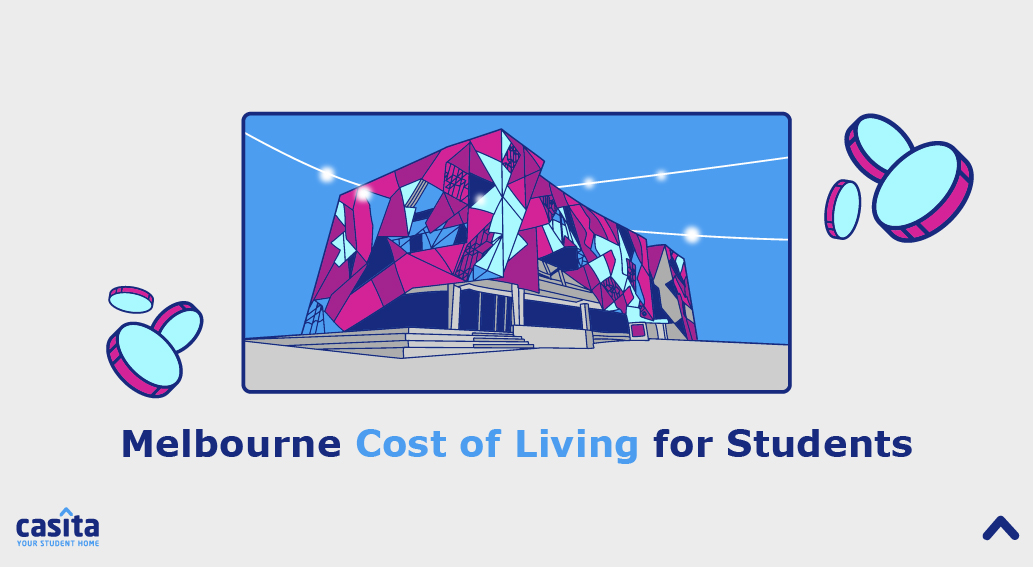
Updated at: 16 December, 2024
Published at: 14 September, 2023
By Allaa Ashraf
Melbourne Cost of Living for Students
Tips and Advice
Student Finance
4 mins read

Updated at: 16 December, 2024
Published at: 14 September, 2023
By Allaa Ashraf
Share
Often dubbed the "Most Livable City in the World," Melbourne is a vibrant and cosmopolitan city nestled on Australia's southeastern coast. Home to renowned universities, a flourishing arts scene, diverse cultures, and countless culinary delights, this Australian city is an irresistible destination for international students *we know you think the same too.* However, one unavoidable aspect of student life is managing finances, which, as we know, sucks. In this article, we'll help ease the process for you a bit and delve into the cost of living in Melbourne for students in detail, offering creative insights on how to make the most of your budget while savouring all that this marvellous city has to offer. So come on, follow along!
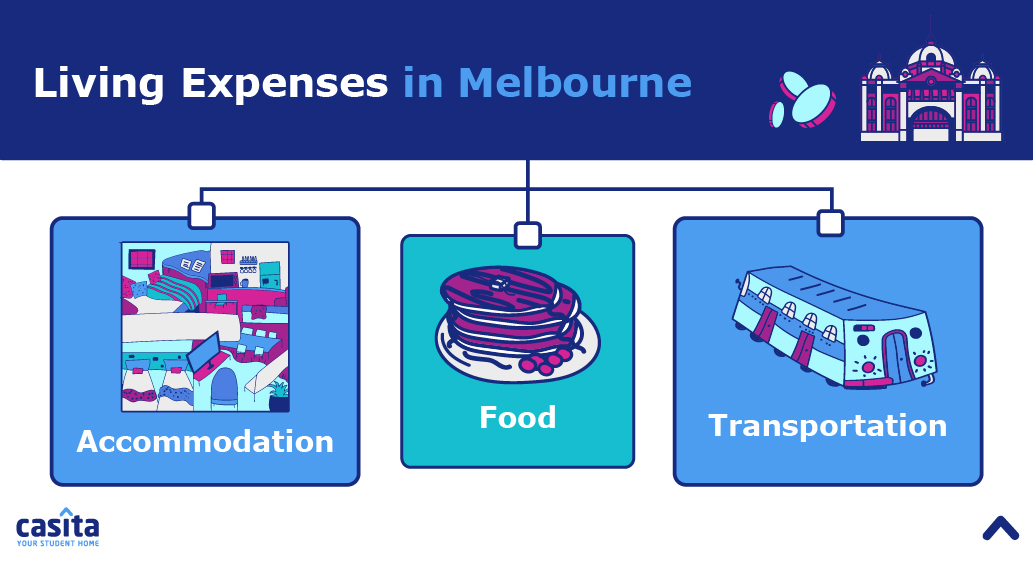
Living Expenses in Melbourne
1. Accommodation
The first challenge students face is securing accommodation, which is usually considered the biggest expense. Melbourne provides a variety of housing options, from university dormitories to shared apartments and PBSAs. University dorms are convenient but can be a bit expensive. To save money, many students opt for shared accommodations in the suburbs or private student accommodation, like those offered by Casita; it’s a marketplace that provides students with accommodation options, like Unilodge Melbourne CBD. These foster a sense of community and help with expenses. The average monthly rent for a one-bedroom apartment in Melbourne is around AU$1,200. However, there are a number of ways to save money on rent, such as sharing a house or apartment with other students, choosing a location that’s a bit far from the city centre, or living in student housing.
2. Food
One of Melbourne's greatest attractions is its food scene. From hipster cafes to international cuisine, the city has it all. While dining out is part of the Melbourne experience, students can enjoy delicious meals without breaking the bank. Explore the iconic Queen Victoria Market, where you'll find fresh produce and budget-friendly bites. Moreover, Melbourne boasts countless food festivals throughout the year, offering delectable treats at student-friendly prices. The average cost of groceries for a single person per week is around AU$100. Don't forget to check out the hidden laneway cafes that serve gourmet dishes at surprisingly reasonable rates!
3. Transportation
Moving on to transportation!
Melbourne's public transport system, comprising trams, trains, and buses, is a convenient way to explore the city and is relatively affordable and efficient. Consider purchasing a myki card, which offers discounted fares for students. A single journey on the tram or train costs AU$4.40, and you can buy a weekly or monthly pass to save money. The estimated monthly costs of transportation for one person is around AU$200. If cycling is a convenient option for you, Melbourne is also known as the "Bicycle Capital of Australia," with numerous bike lanes and rental services. Cycling not only saves money but also allows you to enjoy the city's picturesque streets.
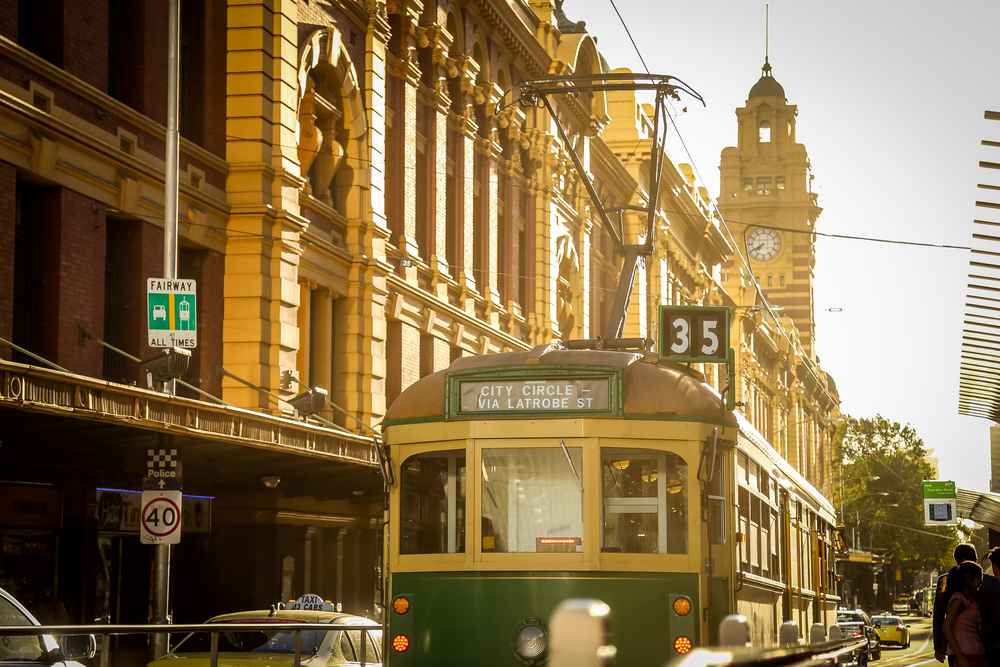
4. Entertainment and Culture
Melbourne is famous for its rich cultural tapestry, which includes art galleries, theatres, live music venues, and sporting events. Fortunately, students can enjoy much of this culture without draining their wallets. Many museums and galleries, like the National Gallery of Victoria. Check out their website for free entry or student discounts on certain days. Keep an eye out for discounted tickets to theatre performances, concerts, and sporting events through student unions and special promotions! The average monthly expense for entertainment ventures in Melbourne is AU$100-200. Nevertheless, It would be a shame if you were to stay in this incredible city in Australia and not be able to explore it fully because of budget restrictions!
5. Other Expenses
Other expenses that students may need to budget for include:
Phone and internet: AU$50-100 per month
Electricity and gas: AU$133 per month
Books and stationery: AU$50-100 per semester
Personal care: AU$20-50 per week
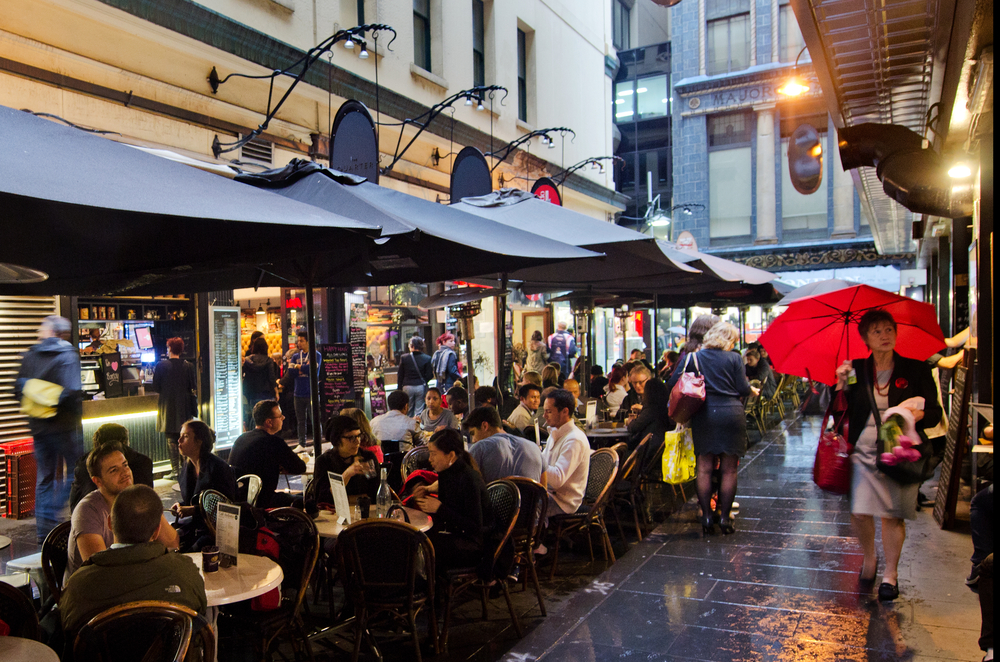
Total Costs in Melbourne
The average cost of living for a student in Melbourne is around AU$2,000 per month. However, this can vary depending on your lifestyle and spending habits. If you are on a tight budget, you can easily live in Melbourne for around AU$1,500 per month.
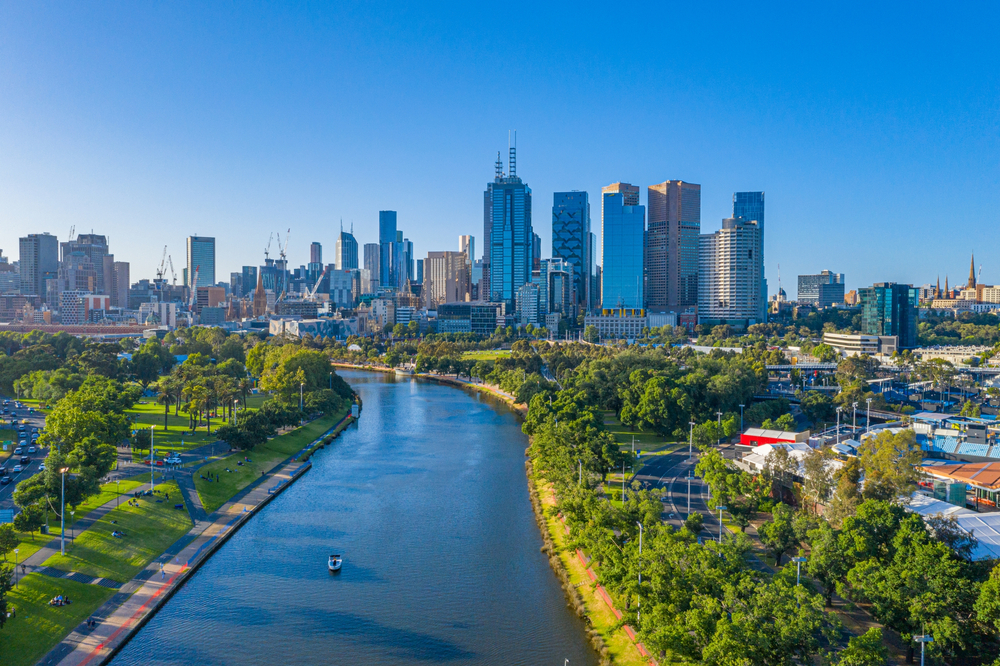
Tips for Saving Money as a Student
Here are some additional tips for saving money as a student in Melbourne:
Student Discounts
Never underestimate the power of your student ID card! It can be your golden ticket to substantial savings. Take advantage of student discounts offered by local businesses, cinemas, public transport, and even some grocery stores. Additionally, consider joining a student union or association, which often provides exclusive deals and events for members.
Part-Time Work
Australia's student visa allows international students to work part-time during their studies. Securing a part-time job not only helps cover living expenses but also provides invaluable work experience. Melbourne's job market is diverse, offering opportunities in retail, hospitality, and even internships in your field of study. The city's strong economy and dynamic job market make it easier for students to find employment.
Other significant tips include the following:
Share accommodation with other students.
Cook for yourself instead of eating out.
Use public transportation instead of taxis or Uber.
Take advantage of free or low-cost activities in the city, such as visiting museums, parks, and libraries.
And there you have it, mates! That was your cheat-sheet on the cost of living Melbourne. Melbourne's allure as a student destination is undeniable, and the city's vibrant culture is a remarkable backdrop for an international education. It’s not an expensive city compared to other cities in Australia, like Perth, Adelaide, or Brisbane.
By managing your expenses creatively, from finding the right accommodation to savouring affordable culinary delights and making the most of your student status, you can experience the best of Melbourne without burdening your budget.
Embrace the city's diversity, engage with its communities, and enjoy the academic and cultural journey that Melbourne offers—all while keeping your finances in check. Melbourne truly is the city where your dreams can thrive, regardless of your budget. So what are you waiting for? Start planning your stay today!
Tips and Advice
Student Finance
By Allaa Ashraf
Share
Tips and Advice
Student Finance
Updated at:
Published at:
By Allaa Ashraf
Share


